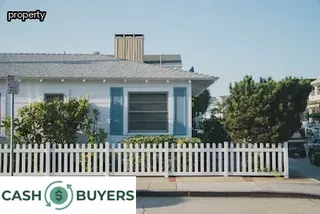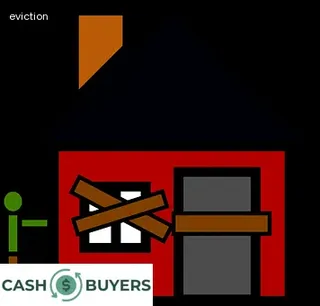The state of Delaware has a Residential Landlord-Tenant Code that provides protections for both landlords and tenants. This code outlines the rights and responsibilities of both parties, and is designed to ensure fair and equitable treatment between the two.
It covers topics such as security deposits, rent payments, tenant access to the property, termination of leases, repair obligations, and other important issues. Tenants are responsible for taking reasonable care of their rented property while they are living in it.
They must also comply with all applicable laws regarding maintenance and upkeep. Additionally, if damage occurs due to a tenant's negligence or improper use of the property, they may be held liable for any costs associated with repairing or replacing it.
Landlords have the right to seek compensation from tenants for any losses incurred as a result of property damage caused by their negligence or misuse.

When creating an effective rental agreement between a landlord and tenant, it is important to clearly define the tenant's responsibilities for damages to the property. In Delaware, landlords are required to provide tenants with written rental agreements that outline the rights and obligations of both parties.
This includes outlining the tenant's responsibility for any damage done to the property during their occupancy. The rental agreement should include a clause that specifies how damage claims will be handled and what actions may be taken by either party in case of damage.
It is also important to make sure that all terms of the agreement regarding damages are legally binding and enforceable under Delaware law. Furthermore, landlords must ensure that all repairs necessary due to tenant-caused damage are timely completed and that appropriate compensation is provided for any losses incurred by either party due to such damage.
By clearly defining these expectations in an effective rental agreement, landlords can avoid future disputes with tenants over property damage issues.
When it comes to choosing a tenant for a rental property, landlords should understand the screening process. Landlords can protect their investments by thoroughly evaluating potential tenants through credit reports, criminal background checks, and employment and rental history screenings.
Knowing how to read these reports is essential in order to identify any red flags that might indicate an unreliable tenant. It’s also important to understand the laws within your state regarding tenant rights and landlord responsibilities when collecting information from prospective tenants.
Additionally, landlords should take steps to avoid discriminatory practices during the screening process such as asking questions about race, religious preference, marital status, family size or sexual orientation. With thorough screening processes in place for each tenant applicant, landlords can rest assured that they are making informed decisions about who will be responsible for their property.

Understanding the rights and responsibilities of both landlords and tenants is key to having a successful rental agreement in Delaware. Landlords must abide by state laws regarding tenant-landlord relationships, such as providing tenants with habitable living spaces, maintaining property repairs and giving proper notice for rent increases.
Tenants also have certain responsibilities when renting a unit in Delaware. For example, they must pay rent on time, follow all rules stated in their lease agreement and take care of any damages caused to the property during their stay.
Additionally, tenants are responsible for any damage they cause even if it happens accidentally or due to negligence. Failure to do so can result in financial penalties, eviction notices or other legal action against the tenant.
In order to protect both parties' interests and avoid disputes over property damage, it is important that tenants are aware of their obligations according to Delaware landlord-tenant law before entering into an agreement with their landlord.
When drafting a rental agreement, it is important to include general clauses that will protect both the tenant and landlord. Depending on the state, clauses may vary but generally they should cover topics such as payment of rent, use of the premises, maintenance and repairs, access to the property by the landlord, occupancy rules and regulations, termination of tenancy, abandonment of property and tenant responsibility for property damage.
To make sure that all potential liabilities are addressed in the contract it is best to use language that is clear and specific. Landlords should think carefully about how each clause might be interpreted if challenged in court.
It is also important to consider including additional provisions that are specific to Delaware’s landlord-tenant laws such as late fees or security deposits. By being thorough when preparing a rental agreement with general clauses landlords can ensure that they have taken appropriate steps to protect both parties involved while abiding by Delaware’s landlord-tenant laws.

Downloadable rental forms, such as those available on the Delaware Landlord-Tenant Code website, can be a great resource for landlords and tenants alike to understand their rights and responsibilities when it comes to property damage. These forms can help both parties identify who is responsible for damages caused by any number of circumstances, including tenant neglect or failure to report issues.
The forms provide clear language outlining how to properly secure the property from damage, what constitutes normal wear and tear versus damage that must be remedied, and how the tenant is expected to handle repairs or other necessary actions in order to keep the property in good shape. Downloading these documents can also help ensure that all parties are aware of the terms of the lease agreement and can serve as a reminder that there are consequences for noncompliance with landlord-tenant law.
Ultimately, utilizing free downloads can make the rental process smoother for everyone involved by providing clear guidelines for each person's respective role in keeping rental properties safe and secure.
DoorLoop is a great way to streamline your business when it comes to Delaware landlord-tenant laws and understanding tenant responsibility for property damage. DoorLoop provides landlords and tenants with an easy way to manage documentation, including leases, applications, inspections, repair requests and more.
By using DoorLoop, landlords can quickly upload all documents into one secure portal where both parties can access them. This allows for quick and easy communication between the two parties in regards to their rental agreement and any damages that may occur during the rental period.
DoorLoop also offers real-time updates on any changes or adjustments that need to be made on either side of the agreement. As a result, landlords and tenants will have no trouble staying informed about their responsibilities regarding property damage, making it easier for all involved to keep up with Delaware landlord-tenant laws.

Signing up for a DoorLoop demo can help landlords and tenants better understand Delaware's landlord-tenant laws, particularly when it comes to tenant responsibility for property damage. DoorLoop offers an easy-to-use platform to quickly review relevant laws and regulations specific to the state of Delaware.
It also provides helpful tips on how to handle various scenarios related to tenant liability for damages. Tenants can use their demos to gain insight into what is expected of them in terms of minimizing any potential damage to the property, while landlords can use their demo to get a better understanding of what kind of damages they are liable for in case something goes wrong.
With Doorloop, both landlords and tenants can have peace of mind knowing that they are making informed decisions about their responsibilities when it comes to property damage.
Using DoorLoop services to manage rental property in Delaware can have a number of implications for both landlords and tenants. For landlords, it can provide an easy way to ensure that all tenant responsibilities, such as repairs and damage caused by the tenant, are properly documented.
In addition, DoorLoop services provide a secure platform to store lease documents and other important information, making it easier for landlords to keep track of their rental properties. For tenants, signing up for DoorLoop can help them understand their rights and obligations under Delaware landlord-tenant laws.
It also provides a convenient way for tenants to document any damages that occur during their tenancy, ensuring that they will not be held responsible for damages caused by others or issues related to the condition of the property prior to occupancy. Signing up with DoorLoop can help both parties understand what is expected of them when it comes to maintaining and repairing rental properties in Delaware.

Being a landlord in Delaware is advantageous for many reasons. First, the state law requires tenants to have sufficient protection and security when they enter into a rental agreement with a landlord.
This means that landlords can be sure that their property will remain safe and secure while in the hands of their tenants. Additionally, Delaware law provides comprehensive guidelines for landlords to follow to protect both themselves and their tenants from potential legal disputes.
Tenants are held accountable for any damage caused to a rental property during the duration of their tenancy, so landlords can rest assured that any damages will be covered by the tenant rather than the landlord. Furthermore, Delaware has laws in place that ensure landlords receive timely rent payments from their tenants and require them to provide proper notice if rent is not paid on time.
Finally, Delaware's laws provide clear guidelines regarding the eviction process, allowing landlords to quickly and efficiently remove troublesome tenants from their properties if necessary.
Landlords in Delaware may face potential challenges and disadvantages when it comes to tenant responsibility for property damage. Landlords must have a thorough understanding of the state's landlord-tenant laws to protect their investment.
Tenants may be held liable for damages that occur during their tenancy, but there are some restrictions in place which can make it difficult for landlords to recoup losses associated with property damage. In many cases, landlords must prove that the tenant was directly responsible for the damage or that they failed to take reasonable measures to prevent it.
Furthermore, tenants may be able to pass on liability to other parties such as roommates or previous tenants if they are found not directly responsible. Additionally, some states have specific laws regarding what types of damages a landlord can and cannot request compensation from tenants for, making it even more complicated for landlords who do not specialize in landlord-tenant law.
All of these factors can make it difficult for landlords in Delaware to successfully pursue claims against tenants for property damage.

Being a tenant in Delaware offers several benefits that can help protect you from certain risks and liabilities associated with renting. Landlord-tenant laws in Delaware provide tenants with rights such as the right to receive notice before a landlord enters the property, the right to privacy and quiet enjoyment of the property, and limits on rent increases.
Furthermore, Delaware law provides tenants with protection if their security deposit is not returned in full or if they are wrongfully evicted. Understanding the state’s landlord-tenant laws can also help tenants understand their responsibilities when it comes to taking care of their rental property.
Tenants who understand their responsibility for any damage they may cause may be able to avoid disputes with their landlords and possible financial consequences related to paying for repairs or replacements.
Living in Delaware as a tenant can have its drawbacks. It is important to understand the laws that govern landlord-tenant relationships and your responsibilities as a tenant.
Tenants can be held liable for damages due to negligence or misuse of the property, such as leaving the property in disrepair or not paying rent on time. This means tenants may be required to pay for any damage caused to the property and can even face eviction if they fail to do so.
Additionally, tenants must adhere to certain rules set by their landlord, such as noise ordinances or restrictions on pet ownership. These restrictions can make it difficult for tenants to feel comfortable and at home in their rental property.
Finally, in Delaware, landlords are allowed to increase rent whenever they choose unless it is stated otherwise within the lease agreement, making it difficult for tenants to budget accordingly and plan ahead financially.

Navigating the eviction laws in Delaware can be a daunting task for landlords and tenants alike. As a landlord, it is important to understand the process of eviction in order to protect your rights as well as ensure that all tenant responsibilities are taken into account.
On the other hand, tenants need to know their rights and obligations under Delaware law when it comes to property damage. Landlords have the right to evict tenants if they fail to meet certain requirements, such as not paying rent on time or causing damages to the property that are not covered by insurance.
Tenants must also be aware of their responsibility for any damage they cause while renting the property. Before filing an eviction action, landlords should consult with an experienced attorney who can help them navigate through this process and explain their rights and responsibilities under Delaware landlord-tenant laws regarding property damage.
In Delaware, landlords have the right to charge tenants for any property damage that occurs during their stay. Tenants should be aware of these laws before signing a lease agreement and understand the consequences of not properly taking care of a rental unit.
Landlords must provide clear descriptions of tenant responsibilities for property damage in the written lease agreement, including what types of damages are considered normal wear and tear versus damages caused by negligence or abuse. Tenants may be held liable for any damages that were caused due to their negligence, including pet damage, smoking-related damage, or destruction due to vandalism.
It is also important to note that tenants may be held financially responsible for unpaid rent if they choose to break the lease agreement early. In order to protect both parties in a rental agreement, it is essential that tenants are aware of all their responsibilities and potential liabilities when it comes to property damage.

Eviction can be an emotionally and financially draining experience for both landlords and tenants. When it comes to Delaware landlord-tenant laws, understanding both the landlord's and tenant's responsibilities is key to avoiding unnecessary stress during the eviction process.
Landlords should make sure they are familiar with their state's applicable laws before beginning any eviction proceedings, as many states have specific rules about notification requirements, fees, and other paperwork that must be completed. Tenants should also understand their rights under Delaware law in order to avoid potential legal issues.
While a tenant may be held responsible for causing property damage, landlords can take steps to prevent this from happening by including specific language in the lease agreement regarding tenant responsibility. Additionally, it may be a good idea for landlords to conduct regular inspections of the rental unit in order to check for any potential damages caused by tenants or their guests.
By taking these proactive steps and familiarizing themselves with Delaware landlord-tenant laws, landlords and tenants can work together to ensure a smooth eviction process free of unnecessary stress.
When it comes to resolving disputes between landlords and tenants in Delaware, the latest updates to the Residential Landlord-Tenant Code are essential for both parties to understand. The code outlines the rights of landlords and tenants, as well as obligations for each when it comes to property damage.
One important aspect of this law is that tenants are responsible for any damage caused by their negligence or a breach of their lease agreement. Additionally, landlords must maintain safe and habitable premises, respond promptly to tenant requests, and provide written notice before entering a rental unit.
Understanding these obligations can help prevent misunderstandings and disagreements between landlords and tenants. To protect your investments as a landlord, consider putting your portfolio on DoorLoop – an online platform that provides comprehensive rental management tools so you can stay informed about tenant behavior.
Keeping up with the latest changes in Delaware’s landlord-tenant laws will ensure that both parties are aware of their rights and responsibilities.
The Delaware Code 5514 outlines the landlord-tenant laws in the state of Delaware, specifically detailing tenant responsibility for property damage. Tenants are obligated to follow the code and abide by its rules.
This includes taking care of the rental property and being responsible for any damages that occur due to negligence or misuse. The code states that tenants must repair or compensate for any damages that they cause.
The landlord is also required to give written notice about the responsibility of tenants for property damage before entering into a lease agreement. Failure to comply with this regulation could result in fines, eviction, or legal action from the landlord.
It is important for tenants to be aware of their rights and responsibilities under this code, as it will help them avoid costly legal issues down the road.

Section 5502 of the Delaware Landlord Tenant Code is a piece of legislation that outlines the responsibilities of both landlords and tenants when it comes to property damage. This section specifically focuses on repairs needed due to tenant damage or neglect.
It states that tenants must make reasonable efforts to keep the premises in good condition and repair any damages caused by them or their guests. In addition, Section 5502 also requires that landlords provide written notice to tenants if they believe there has been damage to the property, allowing the tenant time to fix it before being held liable for costs.
Furthermore, this section also provides guidance for landlords and tenants in determining who is responsible for repairing damages not caused by either party. Ultimately, Section 5502 serves as an important tool for landlords and tenants to use in understanding their rights and obligations when it comes to property damage.
Delaware Code 5507 outlines the responsibilities of landlords and tenants in the event of property damage. It states that a tenant is responsible for any damage to the premises they occupy, regardless of who caused it, unless it was caused by an act of nature or due to normal wear and tear.
Landlords are required to provide tenants with notice of their obligations under this code prior to occupying the premises. Additionally, landlords may not charge a tenant for damages which are the result of normal wear and tear or acts of nature.
This code ensures that landlords and tenants both understand their respective rights in the event of property damage.
In Delaware, tenants are entitled to certain rights and protections under the law. Tenants must be provided a safe and livable home, as outlined in the state's Landlord-Tenant Code.
In addition, landlords cannot enter rental units without proper notice or without permission from the tenant. Other tenant rights in Delaware include the right to protection against discrimination, the right to receive a written lease agreement, and the right to receive information about utilities and other services.
Tenants also have a responsibility to take care of their rental property; including maintaining it in good condition, not damaging it by neglect or misuse, and reporting any maintenance issues immediately. All tenants should be aware of their rights and responsibilities under Delaware landlord-tenant laws so that they can protect themselves from any potential disputes with their landlord.
A: The renter may file a lawsuit or suit against the landlord.
A: A tenant may incur legal fees, court costs, and other expenditures related to the filing of a civil lawsuit against their landlord. It is recommended that the tenant consult with an experienced lawyer to understand what these potential costs may be before taking any legal action.

A: A tenant in Delaware who is a victim of domestic violence or abuse has certain rights under state law. In addition to the right to terminate their lease early, tenants may also be able to seek reimbursement for any damage caused to the rental property due to the violence or abuse. Tenants should contact their local law enforcement agency for more information on their rights and options.
A: If a tenant in Delaware is required to pay for any damages to the rental property but their landlord does not provide written consent or a receipt, the tenant can take legal action. Tenants may be able to recover costs of repair or replacement through civil court remedies.
A: Under Delaware law (Title 25, Chapter 55, § 5561), a tenant who is a victim of sexual offenses that result in damage to the rental property may be entitled to compensation from the landlord for any costs associated with repairing or replacing damaged items.

A: Tenants who are not provided with heat, hot water, or other essential services may file a complaint with the Delaware Attorney General's Office and seek appropriate legal remedies. The tenant may also be able to withhold rent payments until the property is repaired.
A: Tenants who cause damage to the rental property may be responsible for the costs of repairs and may be subject to additional penalties as determined by the landlord. Taxes on the rental property would not be affected.
A: If a tenant believes that their landlord has not provided an accurate measurement of electricity usage in good faith, they can contact the Public Utility Commission in Delaware and file a complaint with the Commission.

A: If a landlord fails to respond to an email about necessary plumbing repairs in Delaware, the tenant may be able to take legal action based on any promises or rent control regulations outlined in the lease or rental agreement.
A: A tenant may be entitled to a per diem award for each day that the landlord failed to take action to address the lead paint. The tenant can also seek damages for any costs associated with repainting, such as labor and materials.
A: A tenant can file a complaint with the Justice of the Peace Court in their county in order to seek resolution of damages caused by their landlord. The court may award damages, repair costs, or other equitable relief.

A: Tenants in Delaware who experience housing discrimination or disability discrimination due to damage to their rental property have the right to file a complaint with the Delaware Human Relations Commission, which enforces the state's Fair Housing Act. Additionally, they may seek legal advice from a consumer protection attorney or contact the Delaware Attorney General's office for assistance.
A: According to Delaware landlord-tenant law, a tenant may file a complaint with the local rent escrow account program if the landlord has failed to maintain smoke detectors or other appurtenances as required by law. The tenant may also be eligible for financial compensation from the landlord for any damages caused by their negligence.
A: Yes, tenants should always follow the lease agreement and any applicable health and safety regulations for their rental property. Tenants should also be aware of potential sources of carbon monoxide, such as fuel burning appliances and furnaces, and should make sure that these are properly maintained. Additionally, landlords must provide written consent or a receipt for any damage caused to the rental property before allowing any marketing activities that could affect the tenant's ability to enjoy their privacy.

A: In Delaware, tenants are usually obligated to pay rent on a monthly basis. If there is any damage to the rental property, the tenant may be able to deduct the cost of repairs from the rent, but only with written consent from the landlord and only if they have proof of payment for those repairs. The landlord also has a duty to maintain health, safety, and housing standards as outlined by state law. Failure to do so could result in premium deductions or other remedies.
A: If a tenant in Delaware is responsible for any damage to the rental property due to illegal activity, they may be held liable for court costs or other applicable expenses. Depending on the severity of the damage, the landlord may also have the right to pursue legal action against the tenant.
A: Yes, according to Delaware landlord-tenant law, tenants are responsible for the installation and maintenance of a Carbon Monoxide Detector in their rental property to protect against carbon monoxide poisoning.